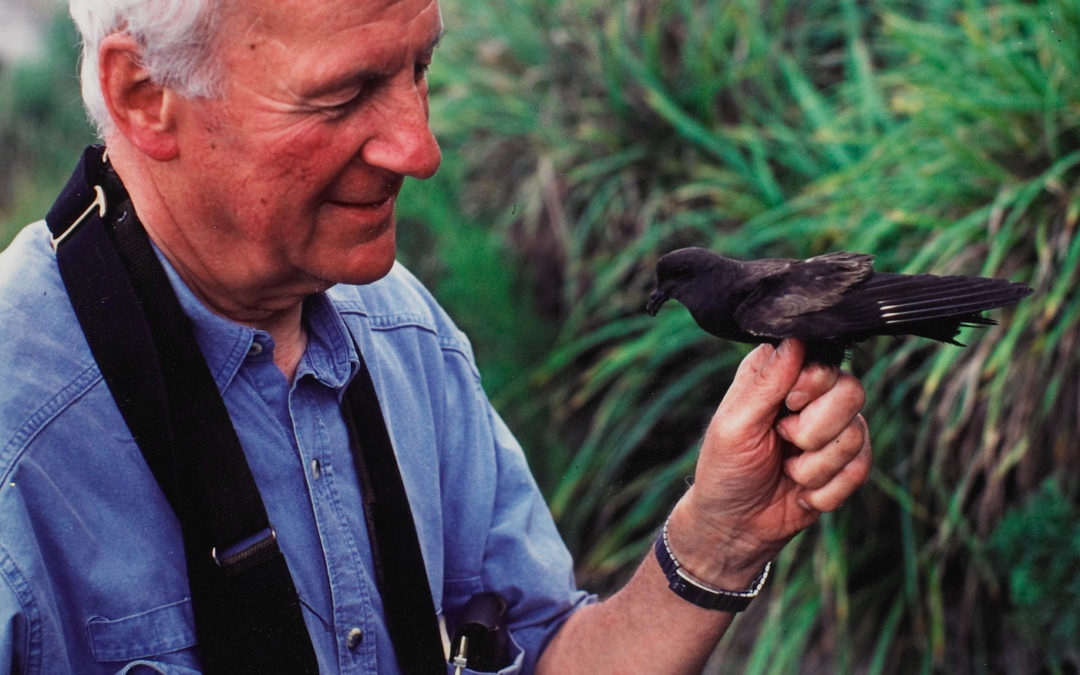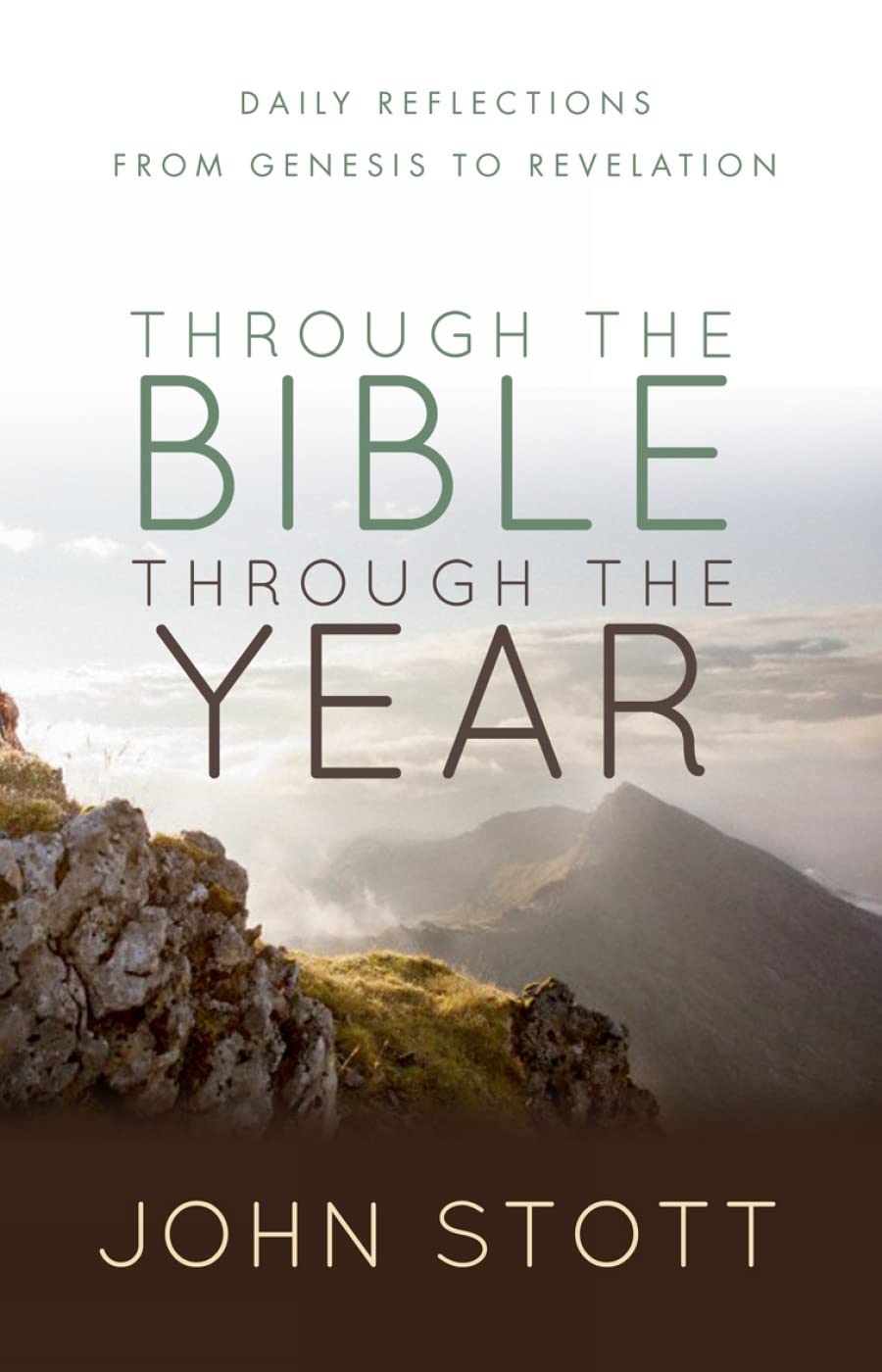Photo: Richard Bewes
Caring for Creation Today: John Stott and God’s Word
By Ruth Padilla DeBorst
This article is a revised version of an address given at All Souls, Langham Place, London to mark what would have been John Stott’s 100th birthday, in April 2021. This article originally appeared in The Global Anglican—a quarterly theological journal published by Church Society—and is published here with permission.
Black; white; brown.
Wealthy; poor; middle class.
First world; Third world.
White collar; blue collar; manual labourer.
These are categories constructed to set apart, to differentiate, to distance, to include some and exclude others. To create others. To set some against others. This portrait of our fragmented and unequal world is not new. But it has been accentuated by the current COVID pandemic and by climate change. Entire countries are opening up because of vaccine availability while, in others, tightening measures cannot hold back wave upon wave of illness and death. Meanwhile, as OXFAM recently reported, it took the mega-rich of the world only nine months to recuperate their COVID- losses, “but it could take more than a decade for the world’s poorest to recover from the economic impacts of the pandemic.” To make matters direly worse, the world is experiencing a true “climate apartheid:” climate change is forcing millions of people to move because of shoreline erosion, coastal flooding and agricultural disruption yet they find their way blocked by exclusionary migration policies in destination countries. Predictions are that the number of climate refugees may reach 200 million by 2050. “So far there is no ‘home’ for climate migrants in the international community, both literally and figuratively,” states the International Organization for Migration. The burden is mostly born by the people least responsible for the emission of greenhouse gases. This is truly a justice issue.
Hold on, Ruth, you might say. This is supposed to be Centenary CELEBRATION, not a litany of global evils. Why are you painting this dismal picture when we’re here to celebrate John Stott and his influence? Well, obviously, Uncle John was not around to face the current pandemic. But he did grapple with issues of justice and climate change, and teach about the biblical imperative of caring for God’s world, out of love for its Creator. No remembrance of John Stott is complete that does not mention that concern. Yet further, the place of humankind within the creation community was not simply a conceptual tenet for him. Rather, his was the embodied belief that creation care is an integral part of the mission of the church. His life was an invitation for followers of Christ the world over to recognise their mutual belonging in God’s creation.
Today, I highlight two dimensions of belonging that marked tío Juan’s life, teaching and legacy. His humble and respectful friendship with people from far outside his inherited and privileged condition led him to affirm their voice, submit to their influence and promote their agency. He valued and fostered belonging within the global body of Christ. At the same time, his sensitive and appreciative posture towards the rest of Creation evidenced his conviction that human beings are called to cooperate with nature in partnership with its Creator. He valued and fostered belonging within the community of Creation. Two historical accounts illustrate what has also been written about both these dimensions.
When two young and fiery Latin American Christian theologians took the floor in the Lausanne Congress on World Evangelization in 1974, many leaders, particularly from the global South, resonated with their radical calls for two needed recognitions: the integration of social responsibility as a dimension of Christian mission, and the separation of Christian witness and American culture, with its inherent racism and class segregation. Although these calls were met with resistance by many white Christians from powerful Northern nations, John Stott not only publicly attested to the evangelical credentials of these men, but he also listened so genuinely that he allowed their perspectives to broaden his. This openness did not, however, get conjured up out of thin air in the spur of the moment. It was the result of a growing friendship nurtured during several trips to Latin America, bird watching expeditions, ministry together in preaching seminars, witnessing poverty and injustice firsthand, and family time shared in leaders’ homes. These were unlikely friendships which grew, not out of comfortable similarity, but out of the intentional border- crossing, category-breaking, and mutual belonging that results from Christ’s reconciling work in the global church. By the way, out of the 500 signatories of the Declaration of Radical Discipleship drafted primarily by René Padilla and Samuel Escobar and publicly supported by John Stott in Lausanne, a handful of leaders from the Two Thirds world continued nourishing their bonds and eventually founded what today is known as the International Fellowship for Mission as Transformation as well as the Oxford Center for Mission Studies. A core program of INFEMIT is the bi-annual Stott-Bediako Forum, the title of which is emblematic of the mutual belonging that overcomes fabricated and exclusionary categories and generates nourishing and life transforming friendships in mission. I personally owe much of my walk of faith to this Fellowship.
A sense of mutual belonging also marked John Stott’s attitude toward the natural world. His point of departure was God, the Creator, active as the Trinity in creation and conservation of the entire eco-system. He explained the relationship of human beings with nature as one of cooperation, a working together with God and with creation. Coherent with this vision, his relationship to the natural world was not unidirectional. Birds and nature were not for him simply objects of study or sources of delight –- though he did derive deep pleasure from engaging with them, as his meticulous notes and diaries reveal. He acknowledged a mutuality, a giving along a two-way street to such a degree that he saw birds as his teachers. I treasure the memory of our days camping in the Argentina Patagonia, during which tío Juan gave my siblings and me new eyes to see what we never would have noticed on our own. With Bible and binoculars in hand, he opened us to the awe of God’s intricately diverse and intertwined creation and instilled in us a passion to learn from and care for it. This formation surely fanned my own deepening commitment to care for creation, which led me to join the A Rocha family and to cultivate this commitment in our local community, Casa Adobe, as well as in the educational endeavours of CETI, our theological school in Latin America.
Mutual belonging in God’s creation. John Stott’s life still serves today as an inspiration and an invitation to evaluate our way of life. To what extent are we allowing our pre-existing perspectives and commitments to be challenged by those of sisters and brothers with backgrounds, outlooks, and experiences different from ours? Further yet, how willing are we to step out of those categories within which our world so intentionally classes us, so that we might honestly become friends with others, and nourish mutual belonging across boundaries and so witness to Christ’s reconciling work and the justice of God’s reign? In relation to our common home, this planet Earth, land, seas, air and all its non-human inhabitants, do we truly believe it all belongs to God and that our human vocation is to care for it out of love for its Creator? Do we acknowledge care for creation is a Gospel matter, and not a polarizing ideological one? If so, John’s embodiment of a simple lifestyle, his acknowledgement of global ecological commitments, his support for the research, conservation and education work of A Rocha, all these open a track we can follow.
Love of God and love of neighbour demand no less.
…
Ruth Padilla DeBorst. “Caring for Creation Today: John Stott and God’s Word.” Church Society: The Global Anglican, vol. 135, no. 3, 2021, pp. 203-205.
This article originally appeared in The Global Anglican—a quarterly theological journal published by Church Society. It is published here with permission.
RUTH PADILLA DEBORST is the Director of the Comunidad de Estudios Teológicos Interdisciplinarios in San José, Costa Rica.


Recent Comments